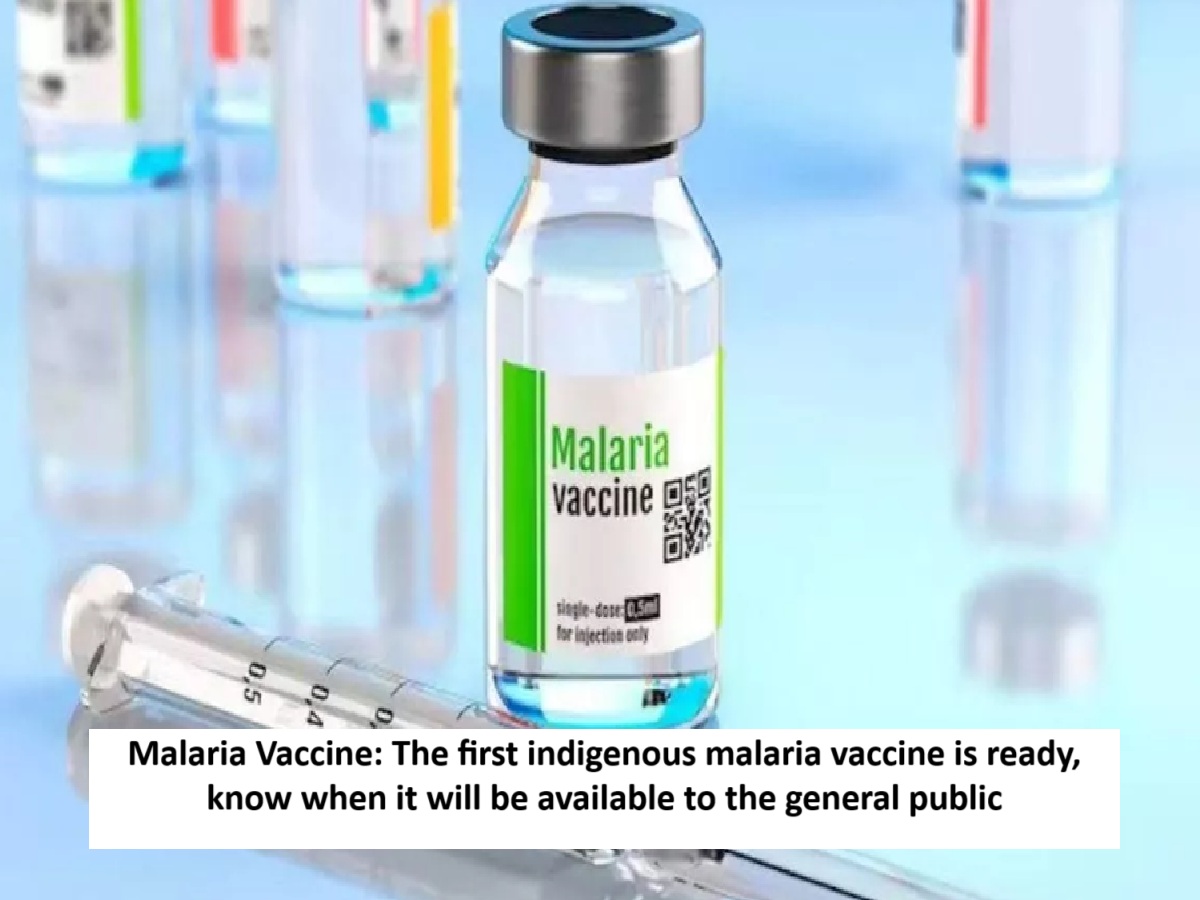
News Topical, Digital Desk : India has achieved a major breakthrough in the fight against malaria by developing the first indigenous malaria vaccine. This vaccine has been found to be effective against malaria-spreading Plasmodium falciparum and is also effective in preventing community transmission of malaria.
ICMR's Bhubaneswar-based Regional Medical Research Centre has developed this advanced malaria vaccine Adfalcivax.
ICMR sought applications from companies
The Delhi-based Indian Council of Medical Research (ICMR) has invited expression of interest (EOI) or applications from eligible organisations, companies and manufacturers for technology transfer for commercial production of the vaccine.
What is the specialty of this vaccine
This is one of the most advanced malaria vaccines in the world. The special thing about this vaccine is that it stops the malaria parasite before it reaches the blood. It also prevents its community spread through mosquitoes. It has been prepared with the help of the bacteria Lactococcus lactis, which is commonly used in making curd and cheese.
Pre-clinical validation of this technology was done in collaboration with ICMR-NIMR (National Institute of Malaria Research), other ICMR affiliated institutes and National Institute of Immunology.
The vaccine has shown promise in pre-clinical trials. Pre-clinical data suggest that the vaccine may have several advantages over existing single-stage vaccines, including broader protection by targeting two parasite stages, improved long-term immunogenicity, and maintained efficacy for more than nine months at room temperature. Adfalcivax is a multi-pronged vaccine designed to protect individuals against malaria as well as prevent community transmission.
India is working towards eradicating malaria
Malaria is caused by the Plasmodium parasite. It is transmitted to humans by female Anopheles mosquitoes. India is working towards eliminating malaria. With an 80.5 percent decline in malaria cases between 2015-2023, India will move out of the World Health Organization's High Burden to High Impact (HBHI) group in 2024.
There was a 78.38 percent reduction in malaria deaths between 2015 and 2023. India aims to reduce malaria cases to zero by 2027 and eliminate malaria completely by 2030.
With the development of this vaccine, India will be able to eradicate malaria from the country more effectively. It is worth noting that globally, around 26.3 crore people are affected by malaria every year and more than six lakh people die.
--Advertisement--

 Share
Share



